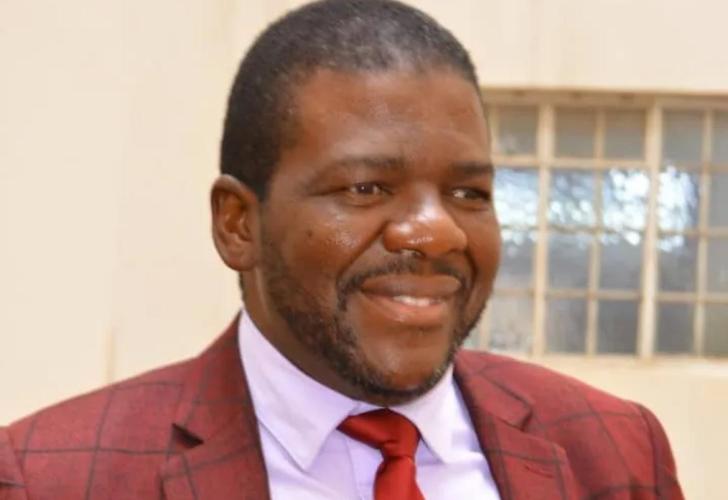News / National
'Sengezo Tshabangu defeats Morgan Tsvangirayi record' Analyst says
11 Dec 2023 at 11:48hrs |
0 Views

Sengezo Tshabangu, the Interim Secretary General of the Citizens Coalition for Change (CCC), has emerged as a formidable force in challenging the ruling ZANU PF through strategic electoral maneuvers, outshining the record of the late MDC-T leader Morgan Tsvangirayi. The stark contrast lies in Tsvangirayi's 2014 decision to recall 18 Members of Parliament (MPs) and subsequently gift 14 seats to ZANU PF without contesting, while Tshabangu not only recalled but successfully contested elections, securing two out of five seats in Bulawayo.
In 2014, Tsvangirayi's move to recall 18 MPs, accusing them of defecting to MDC-Renewal, resulted in a significant blunder as he failed to contest the vacant seats, providing ZANU PF with an unprecedented advantage. Fast forward to the present, Tshabangu took a different approach by recalling five MPs from CCC who had allegedly ceased to be members. Unlike Tsvangirayi, Tshabangu deployed genuine CCC members to contest the elections, winning two out of five seats in Bulawayo.
What sets Tshabangu apart is his commitment to self-funding the electoral campaigns of CCC candidates, who faced a time crunch due to legal battles within the party. The smaller faction of CCC, led by Nelson Chamisa, consistently appealed against Tshabangu's recalls, leaving candidates in limbo. However, the court's eventual ruling in favor of Tshabangu allowed the CCC to secure victories in Bulawayo without the backing of NGOs or political godfathers from Harare.
Critics, including some members of Chamisa's CCC faction, have accused Tshabangu of collaborating with ZANU PF. However, political analyst Gifford Sibanda vehemently disagrees, stating, "Tsvangirai was worse than Tshabangu because he didn't contest the elections, giving seats to ZANU PF on a silver platter." Sibanda emphasizes the historical fact that Tsvangirayi gifted 14 seats to ZANU PF in 2014, while Tshabangu actively contested and secured victories.
Sibanda's perspective challenges the selective memory within the political landscape, shedding light on the hypocrisy of labeling Tshabangu as a ZANU PF project when, in reality, he demonstrated strategic prowess by contesting and winning seats against the ruling party. The events surrounding Tshabangu's electoral strategy contrast sharply with the internal disputes and lack of contestation that characterized Tsvangirayi's leadership.
The narrative unfolds further as Sibanda underscores the historical context, stating, "Morgan gave 14 seats to ZANU PF as a gift, that's a historical fact." The comparison draws attention to the crucial difference in approach between the two leaders, with Tshabangu actively engaging in electoral battles rather than conceding valuable ground to the ruling party.
As Bulawayo witnesses a shift in political dynamics, Tshabangu's success without external backing marks a significant milestone. The political landscape, once dominated by power struggles and internal disputes, now reflects a leader who, unlike his predecessor, is willing to contest, strategize, and secure victories against formidable opponents.
In 2014, Tsvangirayi's move to recall 18 MPs, accusing them of defecting to MDC-Renewal, resulted in a significant blunder as he failed to contest the vacant seats, providing ZANU PF with an unprecedented advantage. Fast forward to the present, Tshabangu took a different approach by recalling five MPs from CCC who had allegedly ceased to be members. Unlike Tsvangirayi, Tshabangu deployed genuine CCC members to contest the elections, winning two out of five seats in Bulawayo.
What sets Tshabangu apart is his commitment to self-funding the electoral campaigns of CCC candidates, who faced a time crunch due to legal battles within the party. The smaller faction of CCC, led by Nelson Chamisa, consistently appealed against Tshabangu's recalls, leaving candidates in limbo. However, the court's eventual ruling in favor of Tshabangu allowed the CCC to secure victories in Bulawayo without the backing of NGOs or political godfathers from Harare.
Sibanda's perspective challenges the selective memory within the political landscape, shedding light on the hypocrisy of labeling Tshabangu as a ZANU PF project when, in reality, he demonstrated strategic prowess by contesting and winning seats against the ruling party. The events surrounding Tshabangu's electoral strategy contrast sharply with the internal disputes and lack of contestation that characterized Tsvangirayi's leadership.
The narrative unfolds further as Sibanda underscores the historical context, stating, "Morgan gave 14 seats to ZANU PF as a gift, that's a historical fact." The comparison draws attention to the crucial difference in approach between the two leaders, with Tshabangu actively engaging in electoral battles rather than conceding valuable ground to the ruling party.
As Bulawayo witnesses a shift in political dynamics, Tshabangu's success without external backing marks a significant milestone. The political landscape, once dominated by power struggles and internal disputes, now reflects a leader who, unlike his predecessor, is willing to contest, strategize, and secure victories against formidable opponents.
Source - Byo24News
Join the discussion
Loading comments…



























